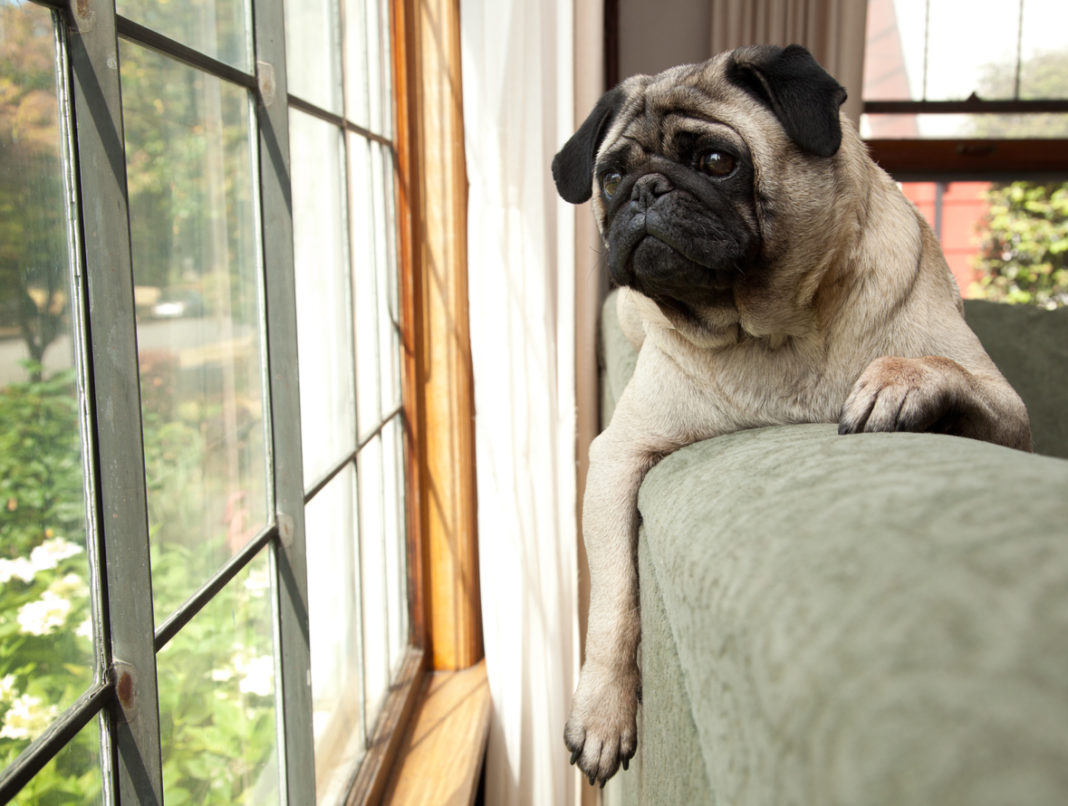Working from home has been a great opportunity to bond with our pets, but as life slowly returns to normal, it’s important to help pets adjust to a life at home without their owners.
According to PETstock veterinarian, Dr Sasha Nefedova, the transition will be especially difficult for any animal that already suffers from anxiety.
“Even for dogs that have not shown any pre-existing signs of anxiety, being with their pet parent for every hour of the day to suddenly only mornings and nights is likely to take an emotional toll on your pet,” Dr Nefedova said.
“Symptoms of anxiety in pets include trembling, licking of lips, pacing, increased drooling or salivation, shaking or a decrease in appetite.”
RSPCA ACT CEO Michelle Robertson said planning ahead is key to help reduce separation anxiety in pets and to ensure a smooth transition back into ‘real life’.
“Begin by writing down a plan and ensure you have everything you need to implement it,” she said. “Consider boredom busters like enrichment activities, and how you will prevent separation anxiety from occurring.”
RSPCA ACT suggests preparing your pet with mini absences. Even when you are at home, it’s important to give your pet limited periods of separation. If you have been at home all the time, build up an adjustment period of separation and gradually extend it to a full day away.
The RSPCA also suggests:
- When returning to work, start your day by going for a walk, vigorous play or other exercise with your pet prior to leaving. This will help tire them out and guarantee plenty of snooze time for the rest of the day.
- Give your pet their own job – puzzles to solve, toys to chew, etc. Giving your dog a ‘job’ to do will keep them mentally stimulated and help manage their anxiety or boredom.
- Avoid saying big dramatic goodbyes to your pet when you leave or come home. Give them a special treat before you head out the door, so they associate you leaving with something good. If your dog senses that leaving is a bad thing, they will be more likely to develop separation anxiety. When arriving home, reward calm behaviour with attention and treats.
- Other ideas include: look into getting a reputable dog walker, join doggy day care or, where feasible, consider neighbourhood pet play dates while humans are at work.
- Some animals can respond well to music and ambient sound – leave a radio or television on when you leave to create familiarity for your pet. Human voices can be comforting when alone.
Ms Robertson said planning ahead will help prevent negative and unwanted behaviours that may occur. She said, unfortunately, behaviour is often one of many reasons an animal is surrendered to the care of RSPCA ACT.
“Please don’t give up before you have given it a good go. Remember why you wanted a pet in the first instance, and please remember that all good things and relationships are worth investing in.
“Most negative behaviours can be changed with love, time, patience and training,” Ms Robertson said.
“However, if for whatever reason you are unable to look after your pet the way that it should be, please get in touch with us or another reputable rescue group.”



